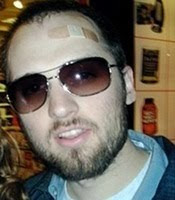Saturday, August 21, 2010
Modern Times (1936, Charles Chaplin)
"A practical device which automatically feeds your men while at work? Don't stop for lunch: be ahead of your competitor. The Billows Feeding Machine will eliminate the lunch hour, increase your production, and decrease your overhead."
The technical similarities across Charlie Chaplin’s body of work are easy to recognize, but the recurring themes of poverty and wealth are just as prominent a feature of his signature style. This film retains its silent roots, but Chaplin definitely had something important to say. Modern Times expands upon those earlier experiments to become his most overtly political film to date. The Tramp suffers through a dangerous and dehumanizing ordeal that sends him from the factory assembly line to the sanitarium to the streets. He and his homeless female counterpart (played by the beautiful Paulette Goddard) spend the rest of the film stealing food to survive, trying to stay out of (or sometimes get back into) prison, and working low-paying jobs with little success. Their search for a real home leads them only to false ones: breaking into a department store, squatting in a rundown single-room shack, and imagining a comfortable place in the suburbs. The film’s most inspired and self-aware sight gag involves Chaplin’s arrest for accidentally leading a workers’ protest march. The House Un-American Activities Committee, apparently lacking a sense of humor, later accused him of holding Communist loyalties. Although much of the film could be interpreted as a call for political change, Modern Times also reflects a deeper dissatisfaction with technological change. The only voices in the film come from mechanical devices, and the Tramp sings only gibberish. The film ends at dawn, with Chaplin walking into the sunset of his artistic era.
Labels:
1936 Modern Times
Subscribe to:
Post Comments (Atom)



No comments:
Post a Comment